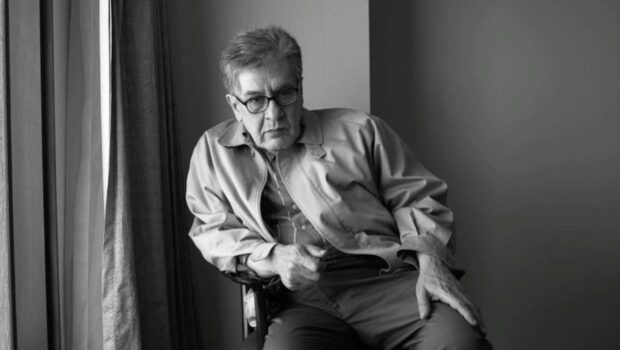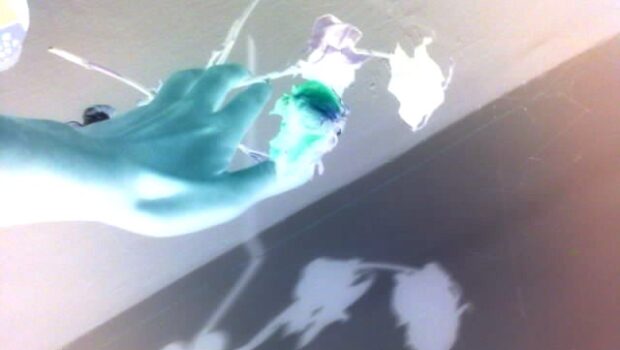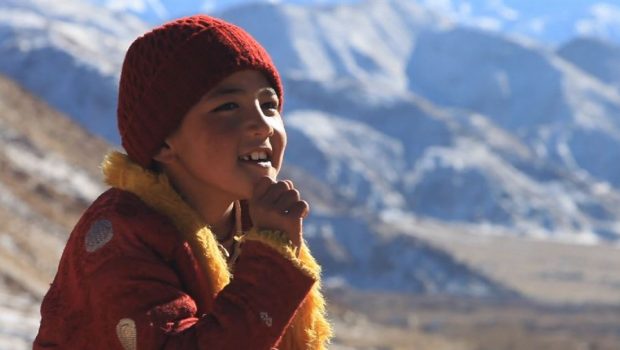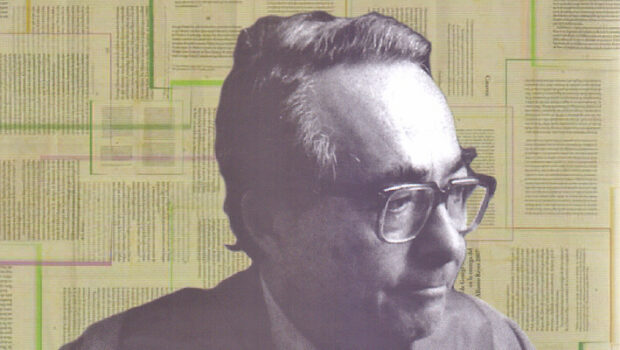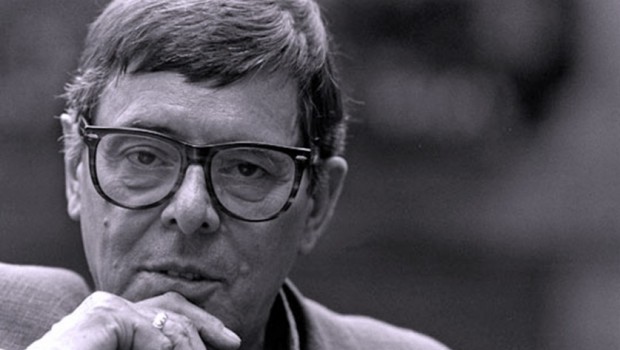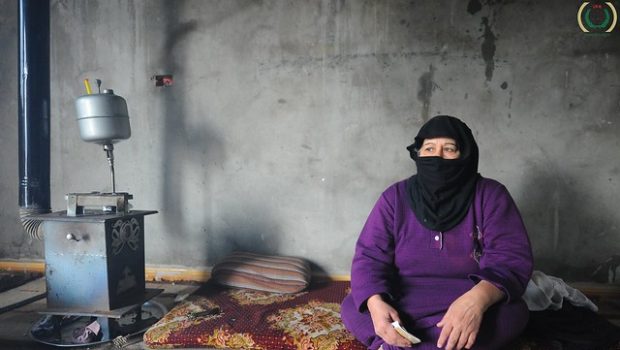Nothing Is Lost * [Seven poems]
Nada se pierde [Siete poemas]
Jordi Doce
Translated from Spanish by Lawrence Schimel
Laurel
for Fernando Menéndez
We knocked down the wall on the fourth day.
There, beside the stone and the ring of weeds,
redolent and dark,
the laurels grew. They were old,
as old perhaps as the stable,
but much firmer. Nothing
could be done against them. It was necessary
to dig very deep
and to extract the jagged rock from the foundations,
check to what extent the root
had grown or prospered,
descending between sheets of gravel
and black earth,
embracing the damp wall
beneath the surface. We lit the bonfire
soon after, in the gloaming,
and exhausted and entranced
we observed the fire’s work. The flames
made their way like great hooks,
but not even thus were the large stones
freed… In making them roll
across the grass, across
the white earth, the ash
put down roots
* * *
In the Garden
I sliced the green netting
and carefully extracted the roots:
a ball of nerves
and compact ochre earth,
an anonymous fist,
with an air of question
or of premonition.
Above the blackish hole
it seemed a buoy,
or an upside down puppet,
one handspan away from its burial.
I settled it in its new home
and it seemed to stretch its trunk,
the net of flesh of its branches,
as if it awoke.
In the mirror of the grass
the green of its leaves became greener.
I imagined the ball, underground,
opening itself to the earth,
blindly stretching its tentacles.
Searching restlessly
for the life it guards within.
1993 / 2003
* * *
Return to Sheffield
Beneath the levelled sky
of February, witness
with the eyes of then
this city of snow
and stubborn ruins, look
with ancient innocence
what has turned into habit,
parched presence,
cold light beneath the flattened
sky of winter.
Who returns, what do you search for
with tired restlessness
in these empty streets
if everything caught fire,
burned in the black bonfire
of the word. Flame
that was desire, nothing
remains for you from that time:
dead type, dryness,
gaunt glimmer
that the eyes mimic
hoping for sense.
To return is no longer possible.
Your city no longer exists.
Did it ever exist?
You knew its streets
for they were born in you.
Your city was a mirror
where measured words
watched you watching it:
white mirror misted
with your breath. Stranger
among shadows, you’ve returned
to not see yourself, denying
your former voice. Erased
innocence, February
is silence in your lips,
flattened light, mute
nonexistent city.
* * *
Fragments from a Bestiary
Smiling Dolphin
for Julio Trujillo
The enigmatic smile of the dolphin, which some have read as a glimmer of intelligence and others have crafted with skill into countless emblems, is perhaps but the smile of one who has forgotten journey and journey’s end and gives himself up to the pure delight of progress, thereby ignoring itself with every leap in a continuous interwoven rebirth, each moment forgetting what was as the dolphin is unaware of its own tail and looks forward to the full delight of the beyond, the water that begets it.
White Scorpion
Lone inhabitant of the cemeteries of ivory and grayed bones that stipple the boundaries of the jungle, this tiny scorpion the colour of milk fulfills with quiet efficiency its work as executioner of the old elephants who have come to die, no less serenely, at the temple of their ancestors. Its prick is painless but mortal, often aided by its victim’s weakness and exhaustion. It lives in fragile harmony with the vultures and crows that anxiously fly above the large skeletons, but it doesn’t fear them: it begins what they complete and lives on the remains they leave behind. Its venom is the distillation of the flesh it strips beneath the apparently-clean bones, its home the shadow of the few roots that spring to the surface, but its whiteness, according to native legends, has another origin: it is the whiteness of a bone that does not accept its end and revives taking a new shape, the secret paleness of what seeks to get back into the realm of time and is only, without knowing it, an envoy of death.
Bubble Toad
Named thus for the bubbles that spring forth from its mouth when it croaks, enveloping it completely in a transparent gauze that highlights the shines and reflections of the light. It then falls into a trance that is only broken by hunger and darkness, although on some nights the milky brilliance of the full moon awakes in it bubbles of singular patterns and colours, mirrors perhaps of the astral combinations that guide the courses of lives. Such is the belief of countless magicians, witches, and oracles that travel from town to town in search of a credulous purse and make use of them for their predictions and trickeries. Certain natives of the marshes have specialized in their capture and later preservation,
which they achieve by submerging the toad and bubble in boiling water.
Only when the toad has expired, drowned, wide-eyed and foolish, do
they extract from the pot the crystal ball where a small wrinkled monster
that never glimpsed its own fate is called upon to foretell that of others.
* * *
Joy
I
I open the door, and the scent of water
piercing the earth enters the room:
slow vapour that thickens the air and leaves
a seed of joy
on the skin:
the hours pass,
the rain doesn’t let up,
the seed has grown a stalk
which tangles round my body;
outside it rains, but a sun rises up
before my eyes, which already forget
the rain’s defeated gray:
tree that offers light, not shadow,
beneath its branches
I smile, without knowing why.
II
Blake wrote that death was no more
than the going out of one room into another:
you leave, you go back in, the house
is the same, this space
opened in the morning
by the scent of cut
grass, by this furtive
freshness that the air
brings to one’s eyes,
just as that boy on the train
held his breath
as if saying, look, look,
and then laughed,
I can stop time.
* * *
Ancient Flight
for Brenda and Charles Tomlinson
The flight of this wasp
in the blue air, against a backdrop
of cypress trees and fake
Medieval columns, while Paula
unravels the garden
with flustered steps
and fleetingly notices every trunk,
the indifferent network
of hedges and pathways,
comes perhaps
from far away, from a time
before the times that I recall,
when the mere existence
of things
imprinted on one’s eyes
cleanly, and the wasp’s
amazing direct flight
was just action and wonder,
a humble event
like this blue background
that affirms the suddenlygrown
cypress trees,
just as Paula now
with a calmer gait
approaches their trunks
and raises her arms
(quick-witted girl)
happily answering their greeting.
* * *
Hamlet on the Beach
for Orlando González Esteva
The clear light of January, so low,
has found the bones of shapes.
This marina is already my skull:
foam and surf, unpeopled dunes,
the bald restlessness of the gulls
combing the quarries and the piers.
I speak face to face with the world
and its empty sockets question me:
they wait for words I don’t know,
the footprints I keep for future days.
I stand on what I see and it comes undone;
it is a dead body, death that sounds me out.
The clear light of January, so unmoving,
confirms the carcass of this moment.
* Poems originally published in the volume Nada se pierde. Nothing Is Lost. Selected Poems, the English version by Lawrence Schimel will soon be available as part of the Shearsman Books catalog (Bristol, UK).
*Image by Cristian
 Jordi Doce ( 1967) is the author of five volumes of poetry and two books of essays. His most recent book, No estábamos allí, was picked as the Best Poetry, Book of 2016 by the literary weekly El Cultural. He has translated the work of W.H. Auden, Anne Carson, T.S. Eliot, Ted Hughes, Charles Simic, and Charles Tomlinson, among others. He worked as Language Assistant at the University of Oxford (1997-2000). Currently he lives in Madrid, where he works as freelance editor and translator.
Jordi Doce ( 1967) is the author of five volumes of poetry and two books of essays. His most recent book, No estábamos allí, was picked as the Best Poetry, Book of 2016 by the literary weekly El Cultural. He has translated the work of W.H. Auden, Anne Carson, T.S. Eliot, Ted Hughes, Charles Simic, and Charles Tomlinson, among others. He worked as Language Assistant at the University of Oxford (1997-2000). Currently he lives in Madrid, where he works as freelance editor and translator.
©Literal Publishing
LAUREL
A Fernando Menéndez
Tiramos la pared al cuarto día.
Allí, junto a la piedra y el cerco de maleza,
olorosos y oscuros,
crecían los laureles. Eran viejos,
tanto quizá como el establo,
pero mucho más firmes. Nada
se podía con ellos. Fue preciso
cavar bien hondo
y extraer la mellada roca de los cimientos,
comprobar de qué forma la raíz
había prosperado,
descendiendo entre láminas de grava
y tierra negra,
abrazándose al muro húmedo
bajo la superficie. Encendimos la hoguera
poco después, en la penumbra,
y agotados y absortos
contemplamos la tarea del fuego. Las llamas
se abrieron paso como garfios,
pero tampoco así las grandes piedras
quedaron libres… Al hacerlas rodar
sobre la hierba, sobre
la tierra blanca, la ceniza
echó raíces.
* * *
EN EL JARDÍN
Corté la redecilla verde
y extraje con cuidado las raíces:
una bola de nervios
y tierra apelmazada y ocre,
un puño anónimo,
con algo de pregunta
o de presentimiento.
Sobre el hoyo negruzco
parecía una boya
o un pelele cabeza abajo,
a un palmo de su entierro.
Lo acomodé en su nuevo hogar
y pareció estirar el tallo,
la red de carne de sus ramas,
como si despertara.
En el espejo de la hierba
el verde de sus hojas se hizo más verde.
Imaginé la bola, bajo tierra,
abriéndose a la tierra,
tendiendo sus tentáculos a oscuras.
Buscando sin descanso
la vida que guardaba adentro.
1993/2003
* * *
REGRESO A SHEFFIELD
Bajo el cielo arrasado
de febrero, contempla
con los ojos de entonces
esta ciudad de nieve
y tercas ruinas, mira
con antigua inocencia
lo que ahora es costumbre,
agostada presencia,
luz fría bajo el cielo
arrasado de invierno.
Quién regresa, qué buscas
con inquietud cansada
en las calles sin nadie
si todo prendió fuego,
ardió en la hoguera negra
de la palabra. Llama
que fue deseo, nada
te queda de aquel tiempo:
letra muerta, aridez,
desnutrido fulgor
que los ojos remedan
esperando un sentido.
No hay regreso posible.
Tu ciudad ya no existe.
¿Existió alguna vez?
Conocías sus calles
pues nacieron en ti.
Tu ciudad era espejo
donde lentas palabras
te miraron mirándola:
blanco espejo empañado
de tu aliento. Extranjero
entre sombras, tú vuelves
para no verte, niegas
tu antigua voz. Borrada
inocencia, febrero
es silencio en tus labios,
luz arrasada, muda
ciudad inexistente.
* * *
FRAGMENTOS DE UN BESTIARIO
Delfín risueño
A Julio Trujillo
La enigmática sonrisa del delfín, que algunos han creído vislumbre de inteligencia y otros tantos han figurado con pericia en incontables emblemas, no es tal vez sino la sonrisa de quien ha olvidado trayecto y destino y se entrega ligero al puro placer del avance, ignorancia de sí que crece a cada salto en un perpetuo renacer enlazado, presente que ignora lo que fue como el delfín ignora su cola y busca la plena felicidad del más allá, el agua que lo engendra.
Escorpión blanco
Habitante solitario de los cementerios de marfil y huesos encanecidos que puntean las lindes de la jungla, este pequeño escorpión del color de la leche cumple con serena eficiencia su trabajo de verdugo de los viejos elefantes que han venido a morir, no menos serenamente, al templo de sus antepasados. Su pinchazo es indoloro pero mortal, con frecuencia ayudado por la debilidad y el cansancio de sus víctimas. Convive en frágil armonía con los buitres y cuervos que sobrevuelan ansiosos las grandes osamentas, pero no los teme: inicia lo que ellos completan y vive de los restos que dejan. Su veneno es la destilación de la carne que deshace bajo los huesos en apariencia limpios y su hogar, la penumbra de las pocas raíces que surgen al aire, pero su blancura, según dicen las leyendas nativas, tiene otro origen: es la blancura de un hueso que no se resignó a su fin y resucitó con nueva forma, la palidez secreta de lo que busca regresar al tiempo y es solo, sin saberlo, un enviado de la muerte.
Sapo burbuja
Así llamado por la burbuja que surge de su boca al croar, envolviéndole por entero en una gasa transparente que figura los brillos y reflejos de la luz. Cae entonces en un trance que solo interrumpen el hambre y la oscuridad, aunque ciertas noches el resplandor lechoso de la luna llena le suscite burbujas de singulares patrones y colores, espejos tal vez de las combinaciones astrales que rigen el curso de las vidas. Tal es la creencia de los innumerables magos, brujas y adivinos que recorren los pueblos en busca de un bolsillo crédulo y se sirven de ellas para sus predicciones y engaños. Ciertos nativos de las marismas se han especializado en su captura y posterior preservación, que procuran sumergiendo sapo y burbuja en agua hirviente. Solo cuando el sapo expira ahogado, con ojos atónitos y necios, extraen de la olla la bola de cristal donde un pequeño monstruo rugoso que nunca vislumbró su destino es llamado a predecir el ajeno.
* * *
ALEGRÍA
I
Abro la puerta, y el olor del agua
al horadar la tierra entra en el cuarto:
lento vapor que liga el aire y deja
una semilla de alegría
en la piel:
pasan las horas,
la lluvia no remite,
la semilla se ha vuelto tallo
y se enrosca en torno a mi cuerpo;
afuera llueve, pero un sol se alza
ante mis ojos, que ya olvidan
el gris vencido de la lluvia:
árbol que ofrece luz, no sombra,
bajo sus ramas
sonrío, sin saber por qué sonrío.
II
Blake dejó escrito que la muerte
era un simple cambio de habitación:
sales, entras, la casa
es la misma, el espacio
abierto en la mañana
por este olor a hierba
cortada, por este frescor
clandestino que el aire
pone en los ojos,
igual que aquel niño del tren
contenía el aliento
como diciendo, mira, mira,
y se reía,
puedo parar el tiempo.
* * *
VUELO ANTIGUO
A Brenda y Charles Tomlinson
El vuelo de esta avispa
en el azul del aire, contra un fondo
de cipreses y falsas
columnas medievales, mientras Paula
desanuda con paso
azorado el jardín
y advierte fugazmente cada tronco,
la trama ensimismada
de setos y empedrados,
viene tal vez
de muy lejos, de un tiempo
anterior a los tiempos que recuerdo,
cuando el simple existir
de las cosas
se imprimía en los ojos
con limpieza, y el vuelo recto
y absorto de la avispa
era tan solo acción y asombro,
humilde acontecer
como este fondo azul
que afirma a los cipreses
de repente crecidos,
igual que ahora Paula
con andar más sereno
se acerca hasta sus troncos
y levanta los brazos
(niña avispada)
respondiendo feliz a su saludo.
* * *
HAMLET EN LA PLAYA
A Orlando González Esteva
La clara luz de enero, tan rasante,
ha dado con el hueso de las formas.
Esta marina es ya mi calavera:
espuma y plomo, médanos sin nadie,
la monda desazón de las gaviotas
peinando los pedreros y los muelles.
Converso cara a cara con el mundo
y sus cuencas vacías me interrogan:
esperan las palabras que no sé,
la huella que reservo a tantos días.
Me planto en lo que veo y se deshace;
es cuerpo muerto, muerte que me ausculta.
La clara luz de enero, tan inmóvil,
confirma la osamenta de esta hora.
• Poemas pertenecientes al volumen Nada se pierde, cuya versión al inglés realizada por Lawrence Schimel será publicada en estas fechas bajo el sello de Shearsman Books (Bristol, Reino Unido).
 Jordi Doce (1967) es autor de cinco volúmenes de poesía y dos libros de ensayos. Su libro más reciente, No estábamos allí, fue elegido como el Mejor libro de poesía de 2016 por el semanario literario El Cultural. Ha traducido la obra de W.H. Auden, Anne Carson, T.S. Eliot, Ted Hughes, Charles Simic y Charles Tomlinson, entre otros. Ha sido Language Assistant de la Universidad de Oxford (1997-2000). Actualmente vive en Madrid, donde trabaja como editor independiente y traductor.
Jordi Doce (1967) es autor de cinco volúmenes de poesía y dos libros de ensayos. Su libro más reciente, No estábamos allí, fue elegido como el Mejor libro de poesía de 2016 por el semanario literario El Cultural. Ha traducido la obra de W.H. Auden, Anne Carson, T.S. Eliot, Ted Hughes, Charles Simic y Charles Tomlinson, entre otros. Ha sido Language Assistant de la Universidad de Oxford (1997-2000). Actualmente vive en Madrid, donde trabaja como editor independiente y traductor.
©Literal Publishing. Queda prohibida la reproducción total o parcial de esta publicación. Toda forma de utilización no autorizada será perseguida con lo establecido en la ley federal del derecho de autor.


![Nothing Is Lost * [Seven poems]](https://literalmagazine.com/assets/33011326721_2c0940fac0_z-e1496377778765-620x350.jpg)
